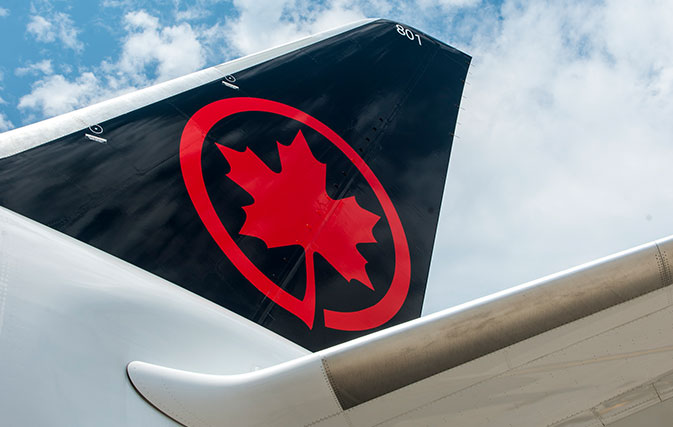TORONTO — If the federal government exercises its warrants to buy more shares of Air Canada, on top of its new equity stake in the carrier – all announced earlier this week as part of Air Canada’s financial assistance package – then the largest single shareholder in Canada’s flag carrier could be … Canadians.
“The government has the right to exercise those warrants and that means the largest single shareholder in Air Canada could be you and me,” airline industry analyst John Gradek told Travelweek.
It was the second time in as many weeks that Gradek shared his insights with Travelweek, following up on last week’s coverage of the terminated deal between Air Canada and Transat.
The dust was still settling on the Air Canada – Transat announcement when Air Canada and the federal government revealed on April 12 their agreement on a $5.9 billion financial assistance package consisting of loans and credit for Air Canada amid the COVID-19 pandemic, including $1.4 billion earmarked for refunds for passengers out-of-pocket in the wake of COVID-19 cancellations.
Most notably for agents, the deal also included commission protection, a major win for the retail travel sector after months and months of intense lobbying.
From the start, the conditions for any financial assistance from the government, for any of Canada’s airlines, was contingent on refunds, job protection and regional connectivity.
There was never any direct mention of an equity stake back in November 2020 when word first came out about the financial assistance talks, but it didn’t take long for speculation to swirl.
Shortly after the November announcement, then-CEO and President of Air Canada, Calin Rovinescu minced no words when he spoke out against state ownership in airlines, calling it “a colossal failure elsewhere around the world.”
Deputy Prime Minister and Finance Minister Chrystia Freeland, when she announced Air Canada’s deal on April 12, said about the federal government’s equity stake: “It was very important for us to get a good and fair deal for Canada and Canadians. And for Canadians to take part in any upside [in this support for Air Canada].”
Travelweek reached out to aviation analyst Gradek to get his take on the government’s stake in Air Canada, and what it could mean for the company – and for other carriers including Transat, Sunwing and WestJet.
“It’s on par with what the rest of the world has done. It’s not an unknown condition,” said Gradek, noting Lufthansa’s 25% state ownership by the German government from May 2020, and the French government’s 30% stake – doubled earlier this month as part of a bailout – in Air France – KLM.
Gradek, an airline industry veteran and now Faculty Lecturer and Coordinator of McGill’s Aviation Management Program, says the financial assistance package, even with the equity stake, “is good news for Air Canada. It gives them some breathing room.”
WHAT ABOUT TRANSAT, SUNWING AND WESTJET?
After Air Canada and the federal government announced their deal, many wondered about the negotiations with Canada’s other airlines, including WestJet, Transat and Sunwing.
Freeland said on April 12: “I’m confident this agreement sets a standard.”
Both Transat and Sunwing (which secured $375 million in LEEFF loans back in February) told Travelweek that talks are ongoing, and both are optimistic that a deal will be reached.
Meanwhile WestJet sent out a statement on April 12, noting that the WestJet Group “continues to operate self-sufficiently with the exception of the Canada Emergency Wage Subsidy (CEWS)”, adding: “We will provide updates on our discussions with the Government of Canada at the appropriate time.”
Says Gradek: “WestJet is basically saying, ‘we’re doing everything on our own, thank you very much’. Do you really think Onex is going to want the government to take a stake?” Onex acquired WestJet in 2019 and took the company private.
Gradek notes that Transat’s uncertain future, following the termination of its agreement with Air Canada, is another complication in the government’s talks with the airlines.
While Gradek believes Transat is viable given bridging cash and some restructuring capital, as noted in Travelweek’s April 8, 2021 issue, he says the government will want to make sure the airline’s future is solid. “Transat needs $500 million. If [Deputy Minister of Finance] Michael Sabia shows up with $500 million, he’s going to want to see his money back.”
One thing was very clear from the April 12 announcement from Air Canada and the government, said Gradek: protection for agent commission.
“Transport Minister Alghabra was very clear on that. I was surprised to hear him come out and say that agent commissions are protected,” said Gradek.
“The lobbying by travel agents – it worked.”
To read the full article check out the April 15 issue of Travelweek here.

